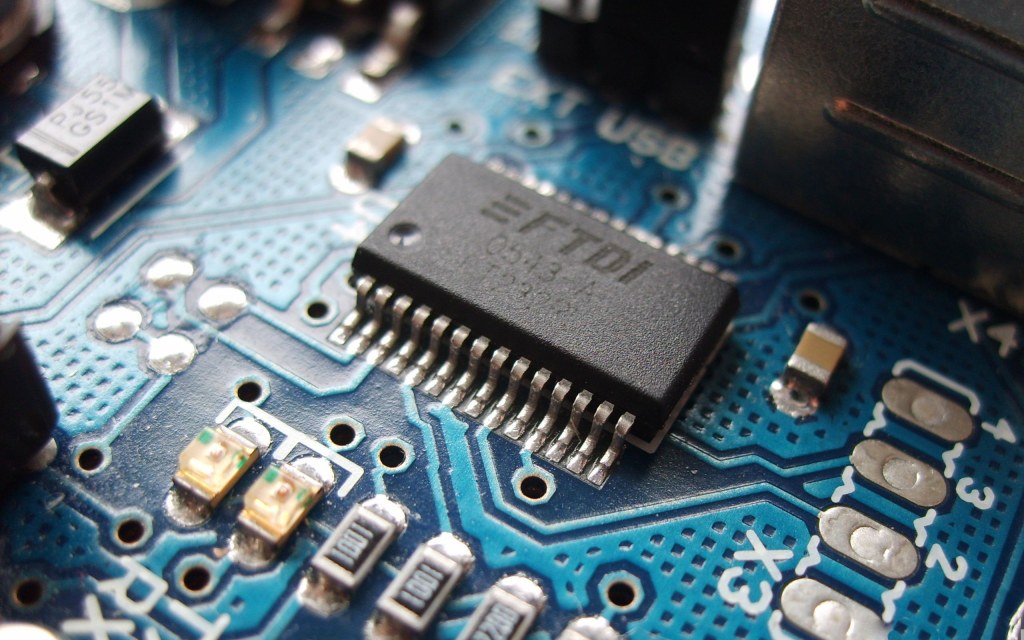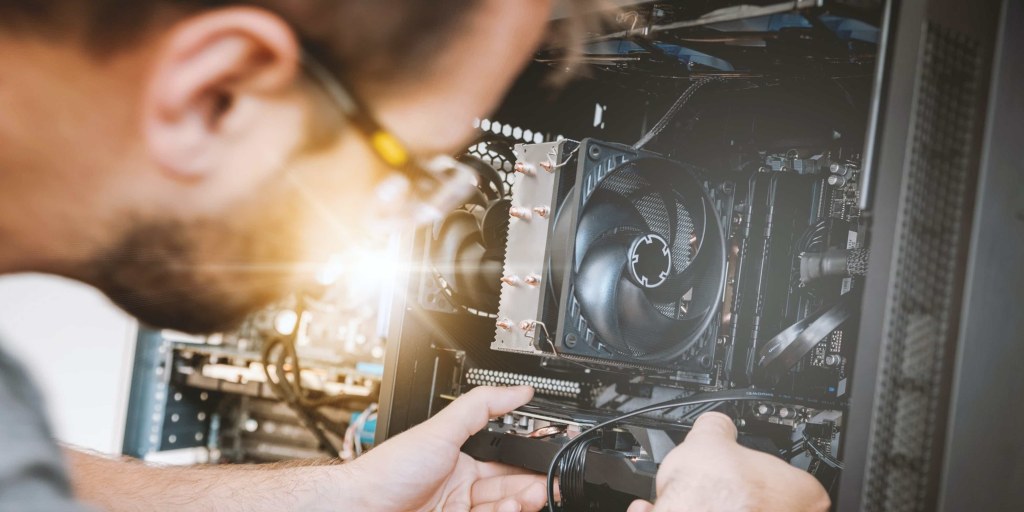Unlock Your Engineering Potential With Cutting-Edge Computer Hardware Solutions
Computer Hardware for Engineering
Introduction
Hello Readers,
2 Picture Gallery: Unlock Your Engineering Potential With Cutting-Edge Computer Hardware Solutions


Welcome to our article on computer hardware for engineering. In this digital age, the field of engineering relies heavily on efficient and reliable computer hardware. Whether you are a mechanical engineer designing complex machinery or a civil engineer analyzing structural integrity, having the right hardware is crucial for optimal performance and productivity.

Image Source: parzlogic.com
In this article, we will explore the different aspects of computer hardware that are essential for engineering professionals. From powerful processors to high-performance graphics cards, we will cover everything you need to know to make informed decisions when it comes to choosing the right hardware for your engineering needs.
So, let’s dive in and discover the world of computer hardware for engineering!
Table of Contents
What is computer hardware for engineering?
Who uses computer hardware for engineering?
When should you consider upgrading your computer hardware?
Where to find the best computer hardware for engineering?
Why is computer hardware important for engineering?
How to choose the right computer hardware for engineering?
Advantages and disadvantages of computer hardware for engineering
FAQs about computer hardware for engineering
Conclusion
Final Remarks
What is computer hardware for engineering?

Image Source: betterteam.com
Computer hardware for engineering refers to the physical components and devices that make up a computer system specifically tailored to meet the demanding requirements of engineering tasks. This includes the central processing unit (CPU), memory modules, storage devices, graphics cards, and other peripherals necessary for efficient computation, modeling, and simulations.
With advancements in technology, computer hardware for engineering has evolved to offer high processing power, extensive memory capacity, and robust performance to handle resource-intensive engineering software and applications.
Who uses computer hardware for engineering?
Computer hardware for engineering is utilized by a wide range of professionals across various engineering disciplines. Mechanical engineers, electrical engineers, civil engineers, and software engineers are just a few examples of individuals who rely on powerful hardware to perform complex calculations, run simulations, and design intricate systems.
Furthermore, students pursuing engineering degrees also benefit from having access to reliable computer hardware, as it allows them to practice and develop their skills in a virtual environment.
When should you consider upgrading your computer hardware?
Upgrading your computer hardware becomes necessary when your current system is unable to cope with the demands of your engineering tasks. Signs that indicate the need for an upgrade include sluggish performance, frequent crashes, long rendering times, and inability to run resource-intensive software smoothly.
Additionally, if you find yourself working with larger datasets or more complex simulations, upgrading your hardware can significantly improve your productivity and efficiency.
Where to find the best computer hardware for engineering?
When it comes to finding the best computer hardware for engineering, there are several options available. Local computer stores, online retailers, and specialized engineering suppliers offer a wide range of hardware components suitable for engineering professionals.
It is important to consider factors such as compatibility, performance benchmarks, and customer reviews when making a purchase. Consulting with fellow engineers or seeking recommendations from reputable sources can also help you make an informed decision.
Why is computer hardware important for engineering?
Computer hardware plays a crucial role in engineering as it directly impacts the speed, efficiency, and accuracy of various tasks. Properly chosen hardware can significantly reduce the time required for complex calculations, simulations, and analysis.
Furthermore, high-performance hardware enables engineers to work with larger datasets, perform real-time simulations, and visualize designs in intricate detail. It also allows for seamless multitasking, enabling engineers to run multiple applications simultaneously without compromising performance.
How to choose the right computer hardware for engineering?
Choosing the right computer hardware for engineering involves considering several factors. First and foremost, you need to assess the specific requirements of your engineering tasks. Determine the software and applications you will be utilizing, and check their recommended hardware specifications.
Next, consider the processing power, memory capacity, storage options, and graphics capabilities of the hardware components you are considering. Look for reputable brands known for their reliability and performance in the engineering community.
Lastly, it is important to set a budget and prioritize your needs accordingly. While cutting-edge hardware may offer the best performance, it might not always be necessary for your particular engineering needs.
Advantages and Disadvantages of computer hardware for engineering
Advantages:
Enhanced Processing Power: High-performance hardware allows for faster calculations and simulations, boosting productivity.
Improved Visualization: Advanced graphics cards enable engineers to visualize designs in intricate detail, aiding in analysis and decision-making.
Efficient Data Handling: Ample memory and storage options facilitate handling large datasets and complex simulations.
Seamless Multitasking: Robust hardware enables engineers to run multiple applications simultaneously without compromising performance.
Future-Proofing: Investing in quality hardware ensures compatibility with upcoming software and technology advancements.
Disadvantages:
High Cost: High-performance hardware can be expensive, especially for cutting-edge components.
Complex Installation: Upgrading hardware may require technical expertise and can be time-consuming.
Compatibility Issues: Ensuring hardware compatibility with existing systems and software can be challenging.
Limited Lifespan: Technology evolves rapidly, and hardware may become outdated within a few years.
Potential Overkill: Opting for top-of-the-line hardware may not always be necessary for certain engineering tasks, leading to unnecessary expenses.
FAQs about computer hardware for engineering
Q1: Can I use a regular consumer-grade computer for engineering tasks?
A1: While it is possible to use a regular consumer-grade computer for basic engineering tasks, it is recommended to invest in hardware specifically designed for engineering to ensure optimal performance and reliability.
Q2: What is the role of a graphics card in engineering?
A2: A graphics card is crucial for engineering tasks as it enables engineers to visualize designs, perform real-time simulations, and analyze complex data in a visually appealing and intuitive manner.
Q3: How often should I upgrade my computer hardware?
A3: The frequency of hardware upgrades depends on your specific engineering needs and the rate of technological advancements. Generally, it is advisable to upgrade every 3-5 years to stay up-to-date with the latest advancements.
Q4: Are there any drawbacks to using outdated hardware for engineering?
A4: Outdated hardware may hinder performance, limit the capabilities of engineering software, and result in slower processing times. It can also lead to compatibility issues with newer applications and technologies.
Q5: Can I build my own computer for engineering purposes?
A5: Yes, building your own computer allows for customization and cost savings. However, it requires technical knowledge and research to ensure compatibility and optimal performance of the components.
Conclusion
In conclusion, computer hardware plays a vital role in the field of engineering. It empowers professionals to tackle complex calculations, simulations, and analysis with ease and efficiency. By choosing the right hardware components and keeping up with technological advancements, engineers can optimize their workflow and achieve remarkable results.
Remember to consider your specific engineering requirements, consult reliable sources, and prioritize your needs when selecting computer hardware. Investing in quality hardware will undoubtedly enhance your productivity, improve your designs, and propel you towards success in your engineering endeavors.
Final Remarks
Friends, thank you for taking the time to read our comprehensive article on computer hardware for engineering. We hope it has provided valuable insights and guidance regarding the importance of choosing the right hardware for your engineering needs. Remember, the right hardware can make all the difference in your productivity and efficiency as an engineer.
As technology continues to advance, staying up-to-date with the latest computer hardware trends and innovations will be vital for staying competitive in the engineering field. Always strive for continuous learning and improvement to unleash your true potential as an engineer.
Wishing you all the best in your engineering journey!
This post topic: Electronics

